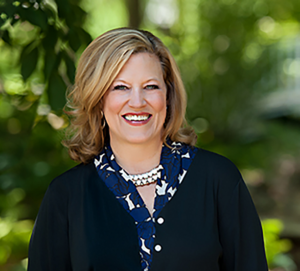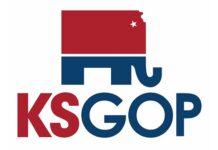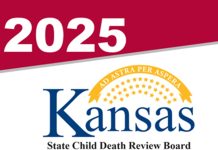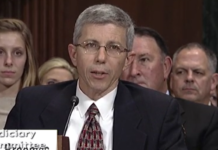Two Republican Party candidates for governor are unwilling to agree to rules governing who can participate in a party-sanctioned debate, including one planned for the GOP’s winter meeting next year.
Insurance Commissioner Vicki Schmidt and Wichita businesswoman Stacy Rogers are unwilling to sign the agreement for similar reasons. Both characterized a rule requiring candidates to donate to the state GOP as “pay to play.”
Both candidates participated in a candidate forum in Cowley County earlier this month.
Six other candidates – former Gov. Jeff Colyer, Secretary of State Scott Schwab, Senate President Ty Masterson, Johnson County businessman Philip Sarnecki, former Wichita School Board member Joy Eakins and former Johnson County Commissioner Charlotte O’Hara – have signed the agreement, according to party officials.
However, O’Hara said she signed the agreement with a caveat only to support another Republican who is pro-life and supports gun rights.
The agreement calls for signers to support the eventual Republican nominee for governor without exception.
It was uncertain whether O’Hara’s agreement would count as being signed, an issue that will be left to the party’s rules committee once it’s determined whether she meets the fundraising requirements established by the rules in January.
O’Hara said she would find it hard to believe that she would be excluded from the debate because of her opposition to abortion and support of gun rights.
The agreement set out a number of fundraising metrics that the candidates must meet when they file their campaign finance reports in January.
The candidates will have to meet one of the following four conditions as reported on their Jan. 10, 2026, campaign finance report:
- $500,000 cash on hand
- $250,000 cash on hand with at least $1,000 from 80 different Kansas counties
- $250,000 cash on hand with 800 individual donations of $100 or more from 800 individual Kansas voters.
- $250,000 cash on hand with no more than 50% raised from any congressional district or less than 10% from any congressional district.
It also requires candidates to donate $10,000 to the Kansas Republican Party.
Schmidt objected to the provision requiring the donation to the party.

“As you know, I am a lifelong Kansan and I’ve been a volunteer, precinct committee person, and elected official in the Republican Party my entire life,” Schmidt said in a letter obtained by the Sunflower State Journal.
“Running for governor is how I’m planning to give even more to the party and our great state, but I will not participate in a debate for the highest office in the state that’s contingent on an entry fee,” she wrote.
“Under this agreement, the party picks winners and losers,” she said.
“Members of the Kansas Republican Party deserve to hear from every candidate in the race, not just the ones the Party has determined deserve to be on the debate stage.”
The Schmidt campaign declined to comment any further than the letter.
State Republican Party Chair Danedri Herbert declined to respond to Schmidt’s letter.
Rogers, meanwhile, went on Wichita television earlier this month to protest the rules.
“It is a total pay-to-play contract. It is controlling who is going to be seen by the people of this state,” Rogers told KAKE television.
Rogers said she would not sign the party’s debate agreement, explaining that voters will not be served by restricting access to the gubernatorial candidates.
“They don’t feel like they’re important,” Rogers said of the electorate.
“They don’t feel anyone’s working for them, and they feel helpless and hopeless. And that’s not okay,” Rogers said.
Herbert said the fundraising thresholds help establish the candidates who have a reasonable to chance at succeeding.

“The reality of campaigning for statewide office is that a person with good ideas is not enough,” Herbert said in an email.
“To win, candidates must have good ideas, deep grassroots support, and the financial backing necessary to get their message to voters,” she said.
“Republicans are looking for a nominee who can win a general election, and we know that requires money.”
At a forum in Cowley County earlier this month, Rogers was asked about what message she was sending to the party by not signing the agreement.
“This was not a choice that I made lightly,” she said. “This was a choice because it is limiting your voice.
“When I’m told who, what, when, where, how of how I can speak and how you will be able to hear from the candidates, that’s a problem,” she said.
Herbert said the debate agreement was not drawn up to exclude anyone.
“It’s designed to give candidates an idea of what they will need to do to be successful as a statewide nominee,” she said.
This is not the first time debate rules have caused turmoil in Republican politics.
In 2018, the party adopted rules that candidate Jim Barnett refused to sign and was barred from participating in a party-sponsored debate.
State GOP officials said the rules were needed to ensure a civil discussion.
But Barnett accused the party of protecting then-Gov. Jeff Colyer and then-Secretary of State Kris Kobach from tough questions.
















